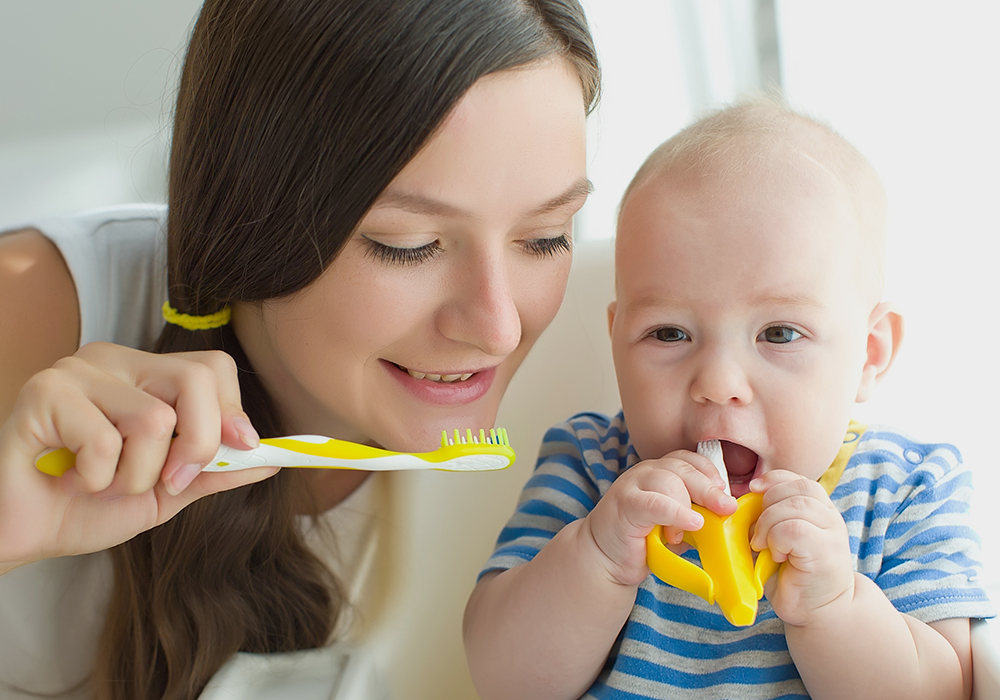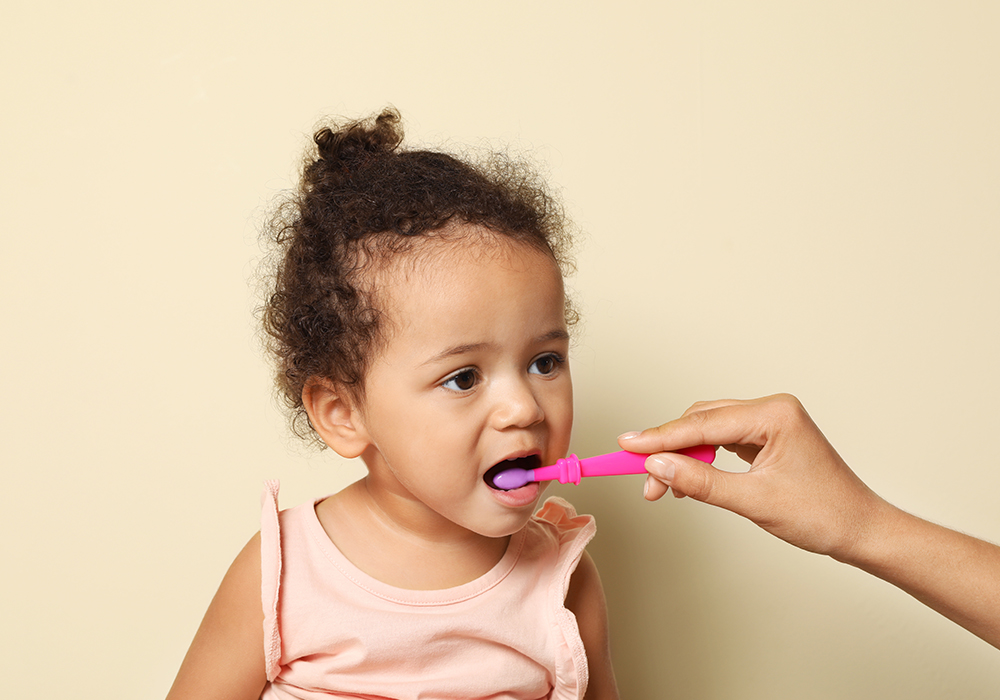30 May 2023
Resource Center
Baby teeth play an important role in many areas of growth and development, and they should be well-cared for until they do fall out when their job is done. Just because baby teeth will eventually fall out does not mean they are expendable and shouldn’t be cared for.
Most babies cut their first tooth between six months and ten months. Taking care of your baby’s teeth, beginning before they even cut the first tooth, will instill healthy practices and keep your baby’s teeth healthy. Caring for baby teeth will prevent them from decaying, which baby teeth are more prone to. Baby teeth play an important role in guiding adult teeth by holding a place for them as they come in. It is important to keep baby teeth healthy and strong until their adult replacements are ready to take over.
Tooth decay is a common childhood disease in that 20% of children have tooth decay in their baby teeth. The good news is that this is a preventable disease. Starting a healthy practice of limiting sugary drinks and foods, visiting the dentist regularly, and brushing daily can keep your child’s teeth less vulnerable to decay.
Why Are Baby Teeth So Important?
There are many reasons why children need strong, healthy teeth. In addition to the role baby teeth play in the growth of adult teeth, they also serve many other important purposes in the growth and development of healthy children. Below are a few reasons why taking care of your child’s baby teeth is important.
- Important to food digestion – Without strong and healthy teeth, it is difficult to chew food, and children with tooth decay are less likely to eat healthier foods like crunchy fruits and vegetables that might be painful to bite into. These foods are vital to proper growth and development, as they provide essential nutrition children need to grow properly.
- Important to speech development and social skills – Baby teeth are essential in a child’s ability to make sounds when learning to communicate and talk, as the pronunciation of certain sounds cannot be developed when teeth are missing or lost too early. It may be hard for a child to communicate if others have trouble understanding what they are saying. Speech therapy may be necessary to correct problems that develop when baby teeth are decayed. Furthermore, it can be difficult for children who are self-conscious about their teeth to make friends at school, talk to teachers, and develop socially.
- Important to feeling good – A child with tooth decay may be susceptible to pain, high fevers, infections, and frequent trips to the dentist or doctor. When an infection in the mouth is left untreated, it can cause more severe problems, cause swelling, and even move into other parts of the body, which can be very dangerous and painful. If a baby tooth has to be extracted, it can be a frightening and painful experience for a child, which can lead to fear of returning to the dentist in the future. Visiting the dentist should be a non-threatening and calm experience. Furthermore, these types of emergency extractions can be expensive.
- Important to bite alignment – As explained previously, baby teeth hold the place for adult teeth. If a tooth is lost too early due to decay, other baby and adult teeth will naturally move into the spot the lost tooth was holding. This can cause crowding and improper jaw alignment and bite, which can lead to the need for braces, surgery, or other dental procedures necessary to correct misalignment.
- Important to self-confidence – Children who experience tooth decay, especially in the front teeth, may be reluctant to smile or laugh or may talk with their hand covering their mouths. This can be detrimental to a child’s self-esteem and overall joy in life.
Cavities in Baby Teeth
Many children and even babies develop cavities in their baby teeth. When the enamel on teeth is compromised, the teeth become vulnerable to decay and cavities. Bacteria in the mouth produce acid when exposed to sugar, which breaks down the enamel. Sugary foods and drinks are the biggest culprits to issues with baby teeth, but even the natural sugars present in breast milk can initiate tooth decay.

Some Simple Steps To Keep Your Child's Teeth Healthy
- Before the first tooth comes in, gently wipe your baby’s gums after meals or twice a day using a clean, soft cloth.
- Don’t give your baby a bottle in bed, which can leave sugar lingering on teeth overnight.
- Avoid sharing germs and bacteria with your baby by doing things like putting their pacifier in your mouth momentarily, feeding your baby off the same spoon as someone else, or tasting your baby’s food with the same spoon you’re feeding the child.
- As soon as your baby's teeth come in, start cleaning them twice a day with a soft brush toothbrush and a spot of fluoride toothpaste the size of a grain of rice.
- Wean your baby from bottles and introduce a cup around one year of age.
- As your children grow older, teach them to brush their teeth two times a day, making it part of their daily routine.
- Make sure your baby's getting plenty of fluoride to protect teeth.
- Give your child low-sugar and healthy foods and drinks.
- Limit sticky foods and snacks that can stick to teeth and leave sugar residues.
- Make water your family’s drink of choice.
- After 12 months, limit juice drinks to four ounces per day and dilute them with 50% water.
- Make sure you take your child to visit the dentist for regular checkups.
Teaching Oral Hygiene From a Young Age
Even though your child will begin losing baby teeth around six years old, it is important to instill healthy habits before their adult teeth come in, so they will already be great at caring for their teeth and brushing twice daily. These good habits will endure and promote a lifetime of good dental health and oral hygiene.

If your child needs emergency dental care, call our 24-hour Emergency Dental Service at 1-888-350-1340 to speak with one of our team members, who can offer advice and schedule your emergency appointment with a local dentist today.

